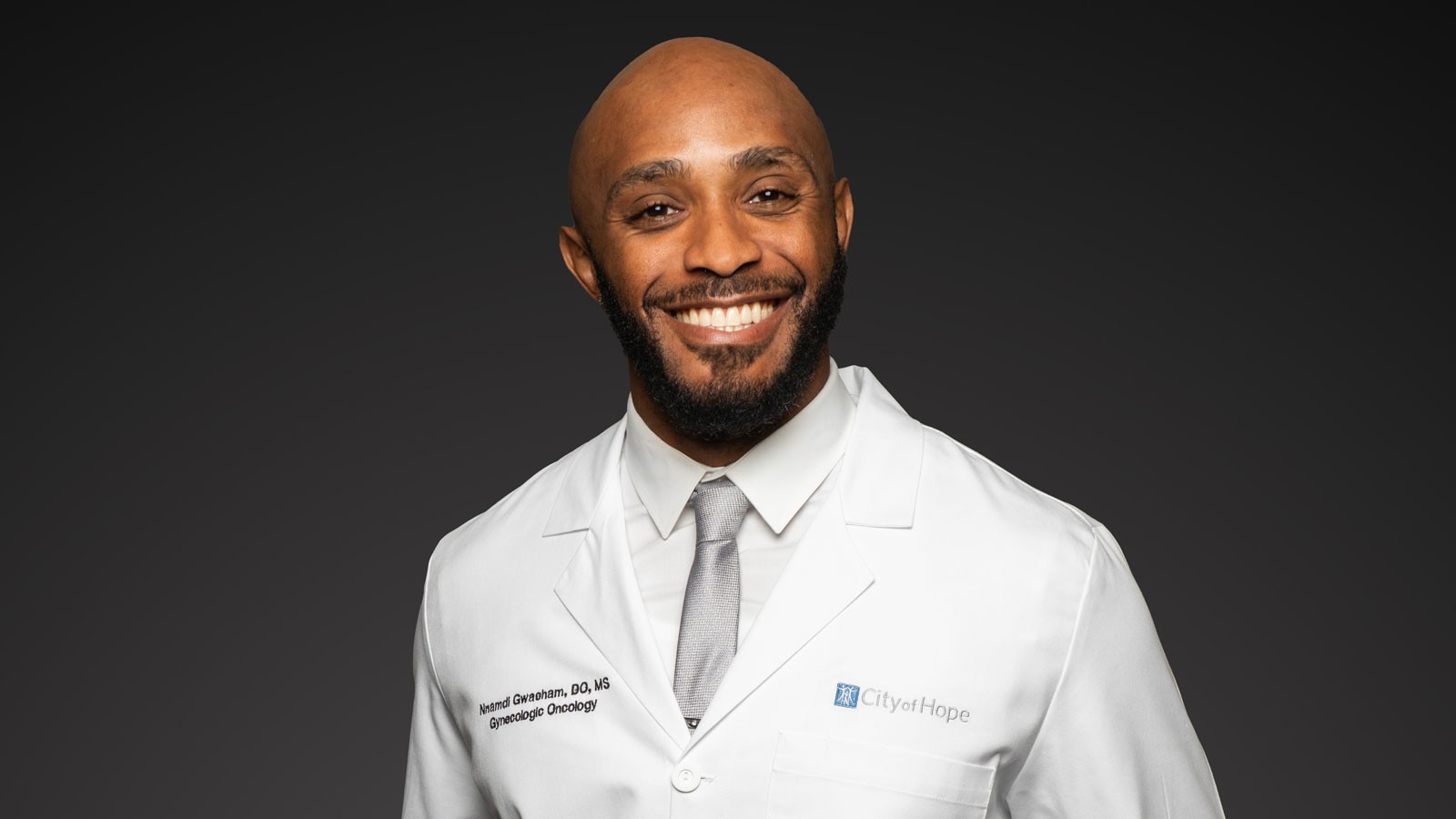Aggie Profile: Dr. Nnamdi Gwacham Reflects on How USU Experiences Prepared Him for Success
By Tim Olsen |
Dr. Nnamdi Gwacham
Editor’s Note: As part of a series commemorating cultural heritages, Utah State Today is publishing interviews with a variety of Aggie alumni, faculty, staff and students. This interview with Dr. Nnamdi Gwacham, a gynecologic oncologist and graduate of the Emma Eccles Jones College of Education & Human Services, is in observation of February as Black History Month.
Dr. Nnamdi Gwacham is a gynecologic oncologist at City of Hope, Phoenix. He specializes in the care of women with cervical, ovarian, vulvar and uterine cancers as well as rare gynecologic malignancies. His experience includes complex surgical procedures for benign gynecologic indications, and he is trained to perform minimally invasive robotic surgeries and radical cytoreductive surgeries.
After earning his medical degree from Edward Via College of Osteopathic Medicine in Blacksburg, Virginia, Dr. Gwacham completed a residency in OBGYN at Saint Barnabas Medical Center. He then completed a gynecologic oncology fellowship at AdventHealth Orlando Cancer Institute prior to returning to the West Coast.
UST: Tell us about your leadership journey and where you are today in your field.
NG: The first opportunity I had to serve in a leadership role was as a student athlete mentor at USU. This led to other opportunities including serving as the president of the Student Athlete Advisory Committee and even the study hall monitor.
I think that my leadership journey underwent a transformation from being an accepting type of leader, to that of a performer. My early positions in leadership found me accepting the role to support and serve the needs of others and not necessarily my own. As the years went on, I transitioned into a performer, by feeling more a sense of duty to my organizations, my colleagues, my peers and my teams. Today, I am a gynecologic oncologist that serves the greater Phoenix area.
UST: What did you study at USU and how did your time as an Aggie prepare you for what you do now?
NG: I studied human movement science at USU and received both a bachelor's and a master's degree prior to starting my medical studies. I was a dual sport student-athlete at USU (football and track & field), and the rigors of athletics played a major role in preparing me for what I am doing today. The early morning workouts, numerous hours of practice and film study, and the stressors of gameday performance all prepared me for the long journey required to become a physician.
Those years of study mandated the same type of dedication, with numerous hours spent reviewing, being evaluated, and paying close attention to detail. I had great support from my teammates and the athletics staff at USU, who were all pivotal in the process.
UST: Who were your biggest mentors at USU and how did they impact your life and career path?
NG: My first mentor at USU was Amy Crosbie. I was nominated to be a student athlete mentor, but foolishly allowed the application deadline to pass. She called me into her office and personally made it known the importance of completing that application. This ultimately led to other leadership opportunities through athletics.
Another mentor that shaped my career path was our team doctor, Thomas Higginbotham, who recognized my emotional decline after an injury that ended my senior season, and ultimately my career. He instilled hope by putting his arms around me and providing an avenue for exposure to medicine. The thing they had in common was the recognition of my potential, and their efforts in nurturing it so that it may bloom.
UST: How has your experience as an African American leader shaped your journey?
NG: I was born and raised in Nigeria and immigrated to America with the rest of my family when I was 11 years old. In Nigeria, we worked hard just to scrape by and to make ends meet. Through the sacrifices made by my parents, we had this tremendous opportunity to become American citizens. The many opportunities that are inherent to America do not exist in Nigeria. That mindset has been fuel for me as I've navigated my own individual journey here.
What I have learned, as an African American professional in America is that there are various opportunities to succeed, provided you try to look for them. Through that success, you will be able to edify others and serve as a beacon of hope for those that come after you.
UST: What advice would you give to the next generation of aspiring Aggie leaders and/or students who are just starting out?
NG: The first thing I would say to young leaders is always welcome every opportunity that you encounter. It is through some of these chance encounters that we can find inspiration for new ideas and opportunities to make an impact in our respective communities.
Never underestimate adversity — its importance or its purpose. It is through adversity that we build character. Seek folks that may not necessarily align with your beliefs and learn what you can from them.
Don't be afraid to fail. Sometimes wisdom comes from failure. While we struggle, rock bottom can also be a great foundation upon which to build and grow. And by the love of your family, your failures will be mitigated, and your successes made sweeter.
WRITER
Tim Olsen
Managing Editor
Utah State Magazine
435-797-1769
timothy.olsen@usu.edu
TOPICS
Student Success 303stories Diversity & Inclusion 252stories Athletics 195stories Alumni 181stories Aggies 134stories Culture 75storiesComments and questions regarding this article may be directed to the contact person listed on this page.







